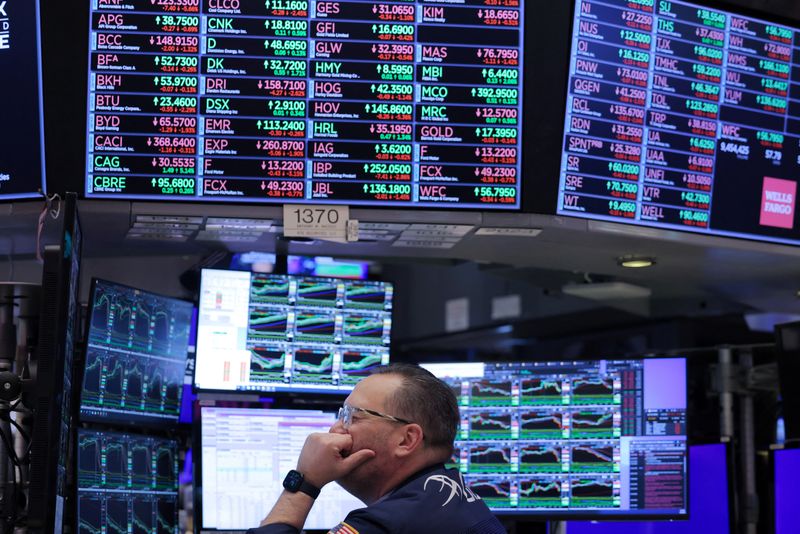
The defence sector tends to outperform around elections. How to play it
Investing.com — The defense sector has a well-documented history of outperforming the broader market around U.S. presidential elections. This trend appears set to continue in the 2024 election cycle, driven by bipartisan support for strong defense policies and strategic military investments.
“Defense stocks have historically outperformed the broader market in the year going into a presidential election, by an average of +15%. In the year following a presidential election, defense stocks still outperform (on avg. +23%), in about equal measure after both Republican or Democratic wins,” said analysts at Wolfe Research in a note.
This consistent outperformance reflects a strong bipartisan agreement on maintaining and even increasing defense capabilities due to global security threats and domestic political considerations.
A Trump victory, particularly with a Republican trifecta, is expected to lead to substantial increases in defense spending. Analysts at Wolfe Research predict that Trump’s presidency would likely result in higher base defense budgets, driven by reduced constraints on discretionary spending.
Trump’s first term saw significant defense spending growth, and a similar trend is anticipated if he returns to office, the brokerage said. Under a Trump administration, base defense budgets could grow at a rate of 2-4% faster than current projections.
Additionally, Trump is expected to seek supplemental funding for allies such as Israel and Taiwan. However, his critical stance on Ukraine raises concerns about a potential reduction in aid, which could offset some of the gains from increased base spending.
Investors should focus on major defense contractors such as General Dynamics (NYSE:GD), Huntington Ingalls (NYSE:HII) Industries, Lockheed Martin (NYSE:LMT), and Raytheon Technologies (NYSE:RTX), as these companies are well-positioned to benefit from higher defense budgets and increased defense spending.
The brokerage identifies these firms as key beneficiaries of a potential boost in defense expenditures. Additionally, investors should be aware of the potential negative impact of Trump’s tariff policies on the commercial aerospace sector, particularly Boeing (NYSE:BA), which could face growth constraints due to these tariffs.
Conversely, a victory for Vice President Kamala Harris, especially with a divided government, is expected to create a more complex defense spending environment. Wolfe Research suggests that while base defense budgets under Harris might be lower due to discretionary spending caps, increased supplemental funding could offset these limits.
Harris’s pragmatic and internationalist approach, coupled with a divided government, could lead to robust supplemental appropriations, particularly for ongoing support for Ukraine.
Under Harris, defense sector investors should anticipate fluctuations in spending levels. Base defense spending may be constrained by discretionary spending caps, but supplemental appropriations could provide a buffer.
Harris’s focus on maintaining strong support for Ukraine indicates continued robust defense spending in this area, benefiting companies involved in military aid and defense logistics.
Analysts at Wolfe Research note that while Harris’s approach may lead to a choppier environment, it could also provide a higher ceiling for defense spending if supplemental funds are secured.
Foreign Military Sales (FMS) are a significant factor in defense sector performance. Under Trump, analysts at Wolfe Research expect an increase in arms sales to the Middle East, driven by his focus on containing Iran and his less stringent stance on human rights.
This shift could substantially boost FMS growth and benefit U.S. defense contractors. In contrast, Harris’s approach would likely be more restrained but still supportive of FMS growth. Her administration might not push for as aggressive an increase in arms sales as Trump, but a positive trajectory is expected.
The future of U.S. support for Ukraine is a critical variable. Trump’s stated intention to reduce aid to Ukraine could create a significant gap in defense funding, impacting companies that benefit from this support.
Wolfe Research flags Trump’s preference for negotiating a quick resolution to the Ukraine conflict, which could lead to a reduction in military aid and affect overall defense sector performance.
In contrast, Harris is likely to continue robust support for Ukraine, maintaining high levels of defense spending in this area. Wolfe Research suggests that this ongoing commitment would likely sustain strong defense spending, benefiting the sector.

